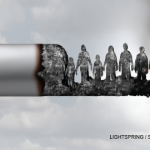(Reuters)—U.S. President Donald Trump has nominated Stephen Hahn, MD, chief medical executive of the University of Texas MD Anderson Cancer Center, to lead the U.S. Food and Drug Administration (FDA), the White House said on Friday.
Dr. Hahn, a radiation oncologist who has been at MD Anderson in Houston since 2015, if confirmed would follow Scott Gottlieb as FDA commissioner. Dr. Hahn’s nomination passes over Ned Sharpless, MD, a previous director of the National Cancer Institute (NCI), who is currently serving s acting FDA commissioner. Dr. Sharpless will return to his role at NCI, the U.S. Department of Health and Human Services announced on Friday.
Dr. Hahn, who had previously been head of radiation oncology at Philadelphia’s University of Pennsylvania School of Medicine, would be taking over a regulatory agency that oversees products ranging from complex cancer drugs to food, cosmetics and tobacco.
“The FDA is a massive government bureaucracy… There is a political aspect to running the FDA that is not really something that Dr. Hahn has done in the past,” said Christopher Mikson, leader of law firm Mayer Brown’s FDA regulatory practice.
“One of the reasons the Trump Administration would bring him in is because is an outsider. He is an academic medical administrator from Texas by way of Philadelphia, not a Washington insider,” Mr. Mikson adds.
Dr. Hahn briefly worked for at the NCI earlier in his career.
Comm. Gottlieb, who stepped down from the post earlier this year, was well regarded by public health advocates and won bipartisan support for his efforts to curb use of flavored e-cigarettes by youth and to speed approval for lower cost generic medicines.
E-cigarettes and vaping products also will likely be on Dr. Hahn’s agenda. Vaping products have been linked in recent months to a mysterious lung illness that has killed nearly three dozen people in the U.S. and sickened more than 1,600.
The Centers for Disease Control and Prevention has said it is still uncertain of the exact cause of the serious lung illnesses, but most cases have been linked to vaping products containing the marijuana ingredient THC.
The FDA has said it plans to begin enforcing existing law that requires vaping products to show that they are “appropriate for the protection of public health” before they can receive marketing approval from the agency.
Several states have already banned flavored vaping products.
Although e-cigarettes have been promoted as a means to help people quit smoking, public health officials are concerned they are being marketed to get a new generation hooked on nicotine.

